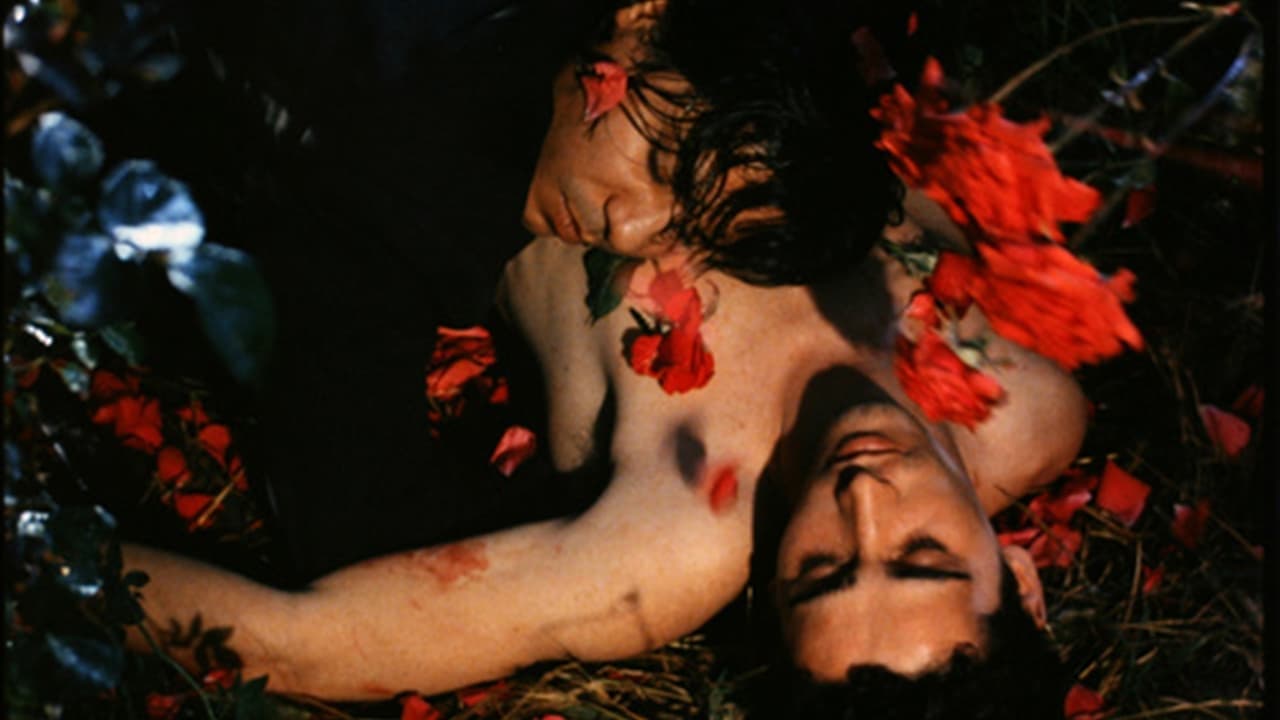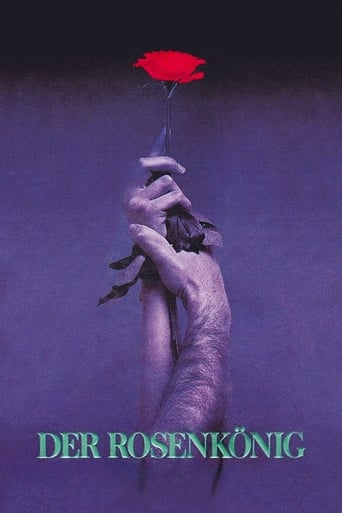

A vastly different take on depression, perception and emotional growth.Admittedly, not an easy watch, however, please bear with me here and try.Try to go in with an open mind and watch this film, not as an effort to a coherent narrative, but as a moving painting trying to immerse you into a scattered, unfinished emotive state which you have to complete with your own impressions.It will take some work but if you can look past certain rather viewer-taxing techniques on Schroeter's part, this exercise in patience will very quickly result into something you will, at the very least, forever remember.
... View More"Der Rosenkönig" or "The Rose King" is a West German film from 1986, so it has its 30th anniversary this year. The director is Werner Schroeter and he also wrote this film together with his lead actress Magdalena Montezuma based on a poem by Edgar Allen Poe. The film runs for slightly over 100 minutes. Montezuma worked with Schroeter on several occasions and this is her very last on-screen performance before her untimely death. The title already gives away that roses play a major role in this film, or do they really? I personally felt the inclusion of these flowers served nothing other than to make a connection to the title really. Still, I must say I have seen worse from Schroeter and at least there are occasional indicators of decent story-telling, mostly in the first half and also some solid music, two aspects that are missing in other Schroeter films entirely despite his attempts to include them there too.Nonetheless, the film dragged a lot and I cannot say I cared for any of the characters at all, or for the story. Yes it is a very strange film for sure and I also think this one may have worked better on the stage as a theater play. As a film, there is really nothing memorable about it except its bizarreness. The performances are also not memorable and the title is misleading as the movie is mostly about Montezuma's character, so it should be called "The Rose Queen" / "Die Rosenkönigin" perhaps. Schroeter, who died over five years ago, was very prolific in the 1970s and 1980s, but then did not make too many films after 1986 anymore. Several of his works are female-centered (like Fassbinder, who also worked with Montezuma), but judging from what I saw here, I cannot say I care a lot about other films from his body of work. I don't recommend the watch.
... View MoreMagdalena Montezuma, star of the film, muse of Werner Schroeter, died 14 days after the filming in Portugal wrapped in 1984. The film is a requiem for her, everyone involved knew she was dying from cancer (discovered in 1982), and she apparently had wanted to die on set. The only professional review I can find from the time slaps it with the emperor's new clothes stamp, seemingly unaware of any context, and whilst Schroeter makes few concessions to the critics, it is actually a fantastic film in my view. It has the dramatic feel of opera, and seems to be about art, religion, lust and love all being dead ends, or at least they were for the characters. There is a quotation of a fragment of Poe's poem City in The Sea, which is about a city that death rules over sinking and being replaced by Hell. It feels very apt up against the creepy rose farm by the sea full of ghastly beauty and fatalistic characters. Only a letter addressed to a location in Portugal provides any clue to the location being in Europe as opposed to Brazil, or Atlantis. Unlike the poem, it's clear that life will continue after the events end, as shown by the band of local children. But this is not an optimistic note as the children seem ignorant and cruel. With some graphic lingering gore, full frontal nudity, scenes of perverse animal cruelty, and with scant regard for the casual viewer, The Rose King is not for everybody, and has pretty much sunk without trace. I'll remember it for its sporadic ecstasies of light, and for its incredible emotional darknesses. The movie left me in pleasant lassitude as do many films which handle depression well.
... View MoreThe IMDb classifies the genre of the film as Drama/Musical, but "Pretentious Nonsense" is probably a more accurate characterization, even if this is a little unkind. The film is certainly pretty to look at; each scene is (visually) as carefully composed as an oil painting, and the slow pace combines these images to an overall impression that is not unlike visiting an art gallery, i.e. moving from picture to picture, pondering over each for a while.The classical music accompanies this well and enhances that emotion, and the characters' movement have a certain balletic quality that fits to the mood.However, that alone does not make a movie. There is barely a story extractable from the proceedings, and the personal relationships between the characters do not ring true, not physically, not emotionally; they are just weird. Ballet has similar difficulties when it tries to tell its audience a story, but there is little justification for maintaining this difficulty at the cinema, just for the heck of it.The film is certainly watchable, like a piece of art, and is in this sense a vast improvement over Schroeter's dreadful "Das Liebeskonzil", but it does not engage the audience. In other words: for toffee-nosed elitists only.
... View More